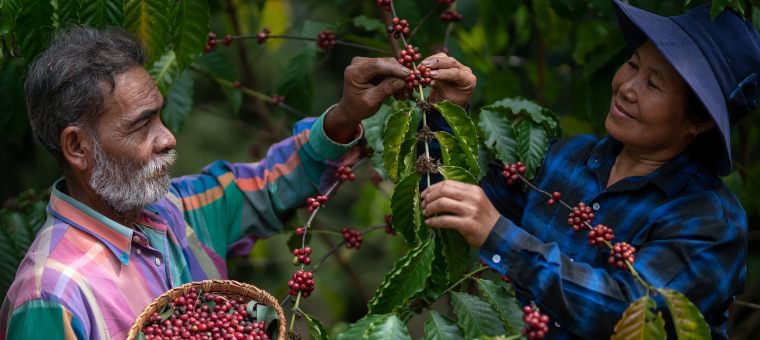
Why Coffee Prices Are Increasing (and Why It Matters)
Share
If you’ve noticed our coffee prices have gone up lately, you’re not imagining things. We know price changes aren’t fun, so we want to be open about why this is happening—and why it’s important.
Over the past few years, the coffee industry has faced what can only be described as a perfect storm of challenges—each one driving prices higher.
Rising production costs. Growing coffee is already a labor-intensive process, but farmers are now dealing with skyrocketing costs at every stage. Fertilizer prices have surged due to supply shortages, fuel costs have gone up around the world, and wages for workers have increased—often because farms are competing to keep skilled labor in rural areas where younger generations are leaving for city jobs. All of these increases make it more expensive to grow and harvest each pound of coffee.
Transportation troubles. Once the beans are picked, they still have a long journey before they reach your cup. Shipping costs have risen sharply, and getting coffee from remote farms to ports is harder than ever. Civil unrest in some of the largest coffee-producing countries has disrupted local transport networks, while global supply chain delays mean coffee often sits in warehouses far longer than it should. In some cases, beans have spoiled before they could even be roasted, adding even more strain to the market.
The climate factor. Coffee plants are sensitive crops that need just the right balance of temperature, rainfall, and altitude to thrive. In recent years, unpredictable weather patterns—from extreme heat to heavy rains—have damaged harvests in multiple coffee-growing regions. This not only reduces the amount of coffee produced each season but also affects the quality of the beans that do make it to market. As supply drops and demand stays high, prices inevitably climb.
For us, fair trade coffee isn’t just about the beans—it’s about the people who grow them. Fair prices mean farmers can keep their land, care for their families, and pass their farms on to the next generation. Without fair pay, coffee farming simply isn’t sustainable.
At Ten Thousand Villages, we’re committed to ensuring that artisans and farmers are paid fairly for their work, even when the market is tough. When you choose fair trade coffee, you’re not just buying a cup—you’re investing in livelihoods, communities, and a more sustainable future.
So next time you sip your morning brew, know that you’re part of something bigger. Thank you for standing with us—and with coffee farmers around the world.
